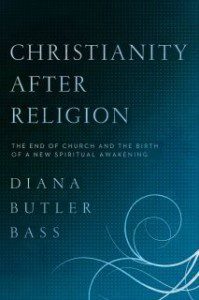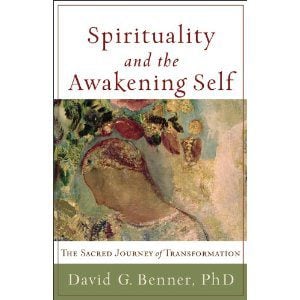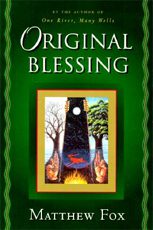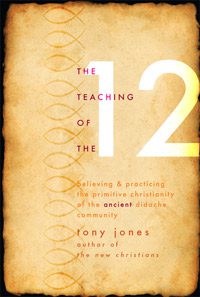The first entry in this blog post series is available here.
My musings on the lecture are in brackets.
Diana Butler Bass’ first lecture (of three total lectures) was on “Reclaiming Christian Experience.”
- There has been a major SHIFT away from organized forms of faith toward experience. Surveys show that in the late 1950s, a mere 22% of the U.S. population reported having any sort of mystical “religious experience.” Last year, 49% of the U.S. population claimed such an experience, which means that almost 50% (one out of every two U.S. citizens) claims to have had a mystical experience, a statistic which has more than doubled since mid-century. [There are many parallels to this trend that are noted in an excellent book I reviewed for the Patheos Book Club last month — Jeffrey J. Kripal’s Mutants and Mystics: Science Fiction, Superhero Comics, and the Paranormal.]
- The “growing religions” (those increasing in numbers of adherents) are those religions that emphasize experience more than creed or inherited identity, as well as internal authority more than external authority.
- Beware the false choice of ‘Intellect on Ice’ vs. ‘Ignorance on Fire.’ [As William Butler Yeats (1865-1939) wrote in his poem The Second Coming, “The best lack all conviction, while the worst / Are full of passionate intensity.”]
- In the early twentieth-century, personal experience was a central criterion of authority for liberal theology. [I wish every progressive Christian would take the time to read at least the final volume of Gary Dorrien’s magisterial trilogy: The Making of American Liberal Theology: Crisis, Irony, and Postmodernity: 1950-2005. We are heirs to a great liberal Communion of Saints, who have come before us and blazed the trail on which we walk.]
 Those early liberal Christians experienced God IN this world (immanence), not just “out there” or in the “next world” (transcendence). And because they believed that God was in this world and in all things in the universe, they were open to how science was revealing God as we learned more about the world. [As Michael Dowd has written in his book Thank God for Evolution, “Science reveals ‘God’s word’ for humanity today…. Science is modern day scripture.” Or as Einstein said, “Science without religion is lame; religion without science is blind.” For more, see Sallie McFague’s vitally important book A New Climate for Theology: God, the World, and Global Warming.]
Those early liberal Christians experienced God IN this world (immanence), not just “out there” or in the “next world” (transcendence). And because they believed that God was in this world and in all things in the universe, they were open to how science was revealing God as we learned more about the world. [As Michael Dowd has written in his book Thank God for Evolution, “Science reveals ‘God’s word’ for humanity today…. Science is modern day scripture.” Or as Einstein said, “Science without religion is lame; religion without science is blind.” For more, see Sallie McFague’s vitally important book A New Climate for Theology: God, the World, and Global Warming.]
- Friedrich Schleiermacher, in his 1799 book, Reden über die Religion (On Religion: Speeches to Its Cultured Despisers), set the trajectory of contemporary liberal theology. He spoke of religion as being about not fear of death or fear of God. Instead, religion is a response to the deep needs of humans. Religion is not ultimately about metaphysics or morality. Instead, religion is essentially an intuition or feeling. Religion is the miracle of the direct relationship we have with God’s immanence here, now, and in this world. Dogmas are only the secondary, second-order reflection upon that miracle.
- There was a ‘divorce’ (so to speak) in first half of twentieth century in U.S. Christianity. In the divorce settlement (as it were), fundamentalists took experience and liberals took intellectualism. In this religious split-up, liberals got custody of the head, whereas evangelicals and pentecostals got custody of the heart. The problem is that all Christians need BOTH.
- Relatedly, Harry Emerson Fosdick (1878–1969) preached a famous sermon in 1922 at Riverside Church in New York City titled, “Shall the Fundamentalists Win?” which already noted at that early date that liberal Christians were “excessively preoccupied with intellectualism….and separated from our hearts.” Yes, we need to bring reason into our faith. However, Fosdick noted in a lesser-known sermon titled, “The Church Must Go Beyond Modernism,” that one’s rational faculties alone are insufficient. And liberal Christians had become both overly rationalistic and hyper sentimental. [For a contemporary rejoinder to Fosdick’s sermon, see “Will the Fundamentalists Win? A Question Revisited,” delivered by the President of the Interfaith Alliance, The Rev. Dr. C. Welton Gaddy at The Riverside Church of New York City on Sunday, October 17, 2004.]
- Wilfred Cantwell Smith (1916-2000) similarly noted in his 1962 book The Meaning and End of Religion that the definition we have inherited of religion is too intellectual. The etymological root of the English word religion (religio) connotes experience, in particular an experience of awe or wonder. We must accordingly ask ourselves, “Are our religious institutions authentically in the religio business? Do we make space for awe, wonder, and God in all things?
- We need an ‘Integrated Faith’ of both mind and heart. [I’m reminded of Ken Wilber’s important work on Integral Spirituality: A Startling New Role for Religion in the Modern and Postmodern World.]
For more details on each of these bullet-points, you can pre-order Bass’ forthcoming book Christianity After Religion: The End of Church and the Birth of a New Spiritual Awakening (February 14, 2012):
Stay tuned for the next installment on the highlights of Marcus Borg’s first lecture in the series.
The Rev. Carl Gregg is a trained spiritual director, a D.Min. candidate, and the pastor of Broadview Church in Chesapeake Beach, Maryland. Follow him on Facebook (facebook.com/carlgregg) and Twitter (@carlgregg).


















